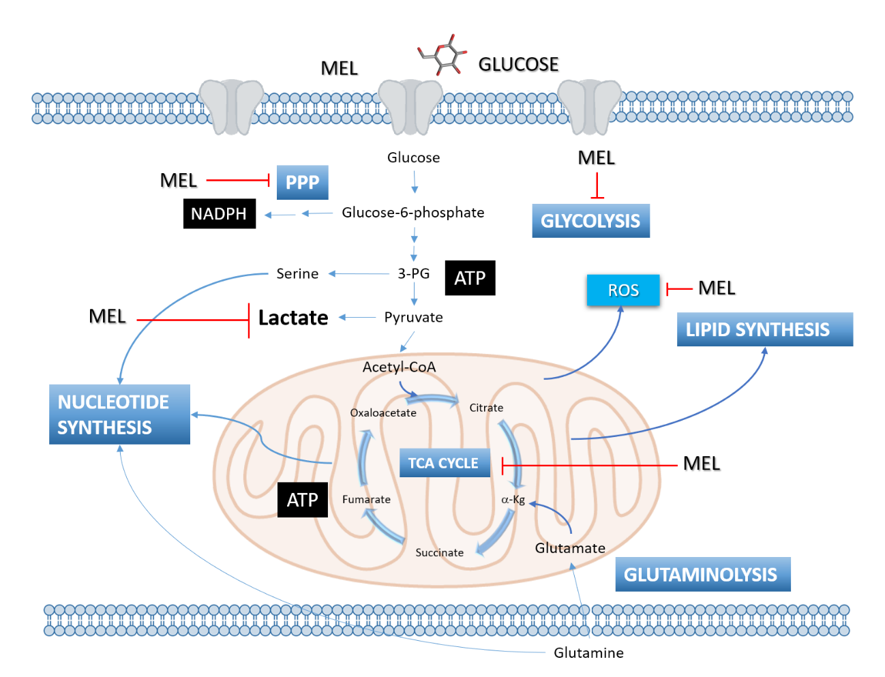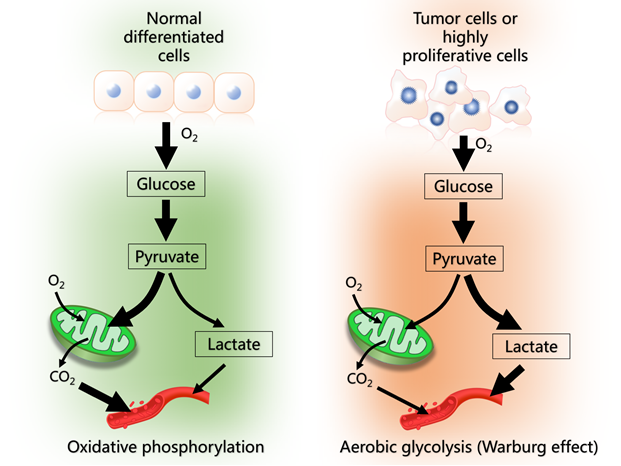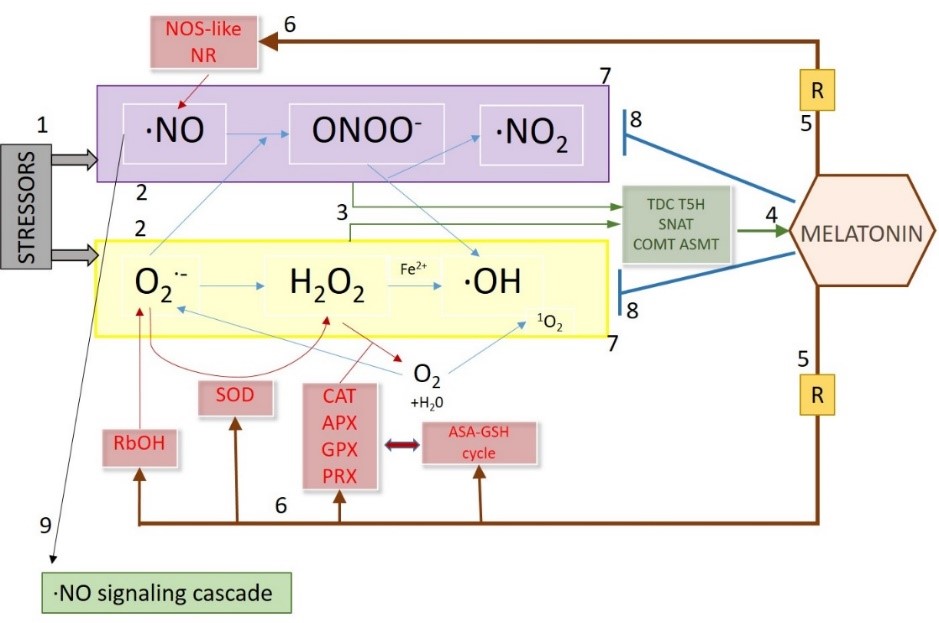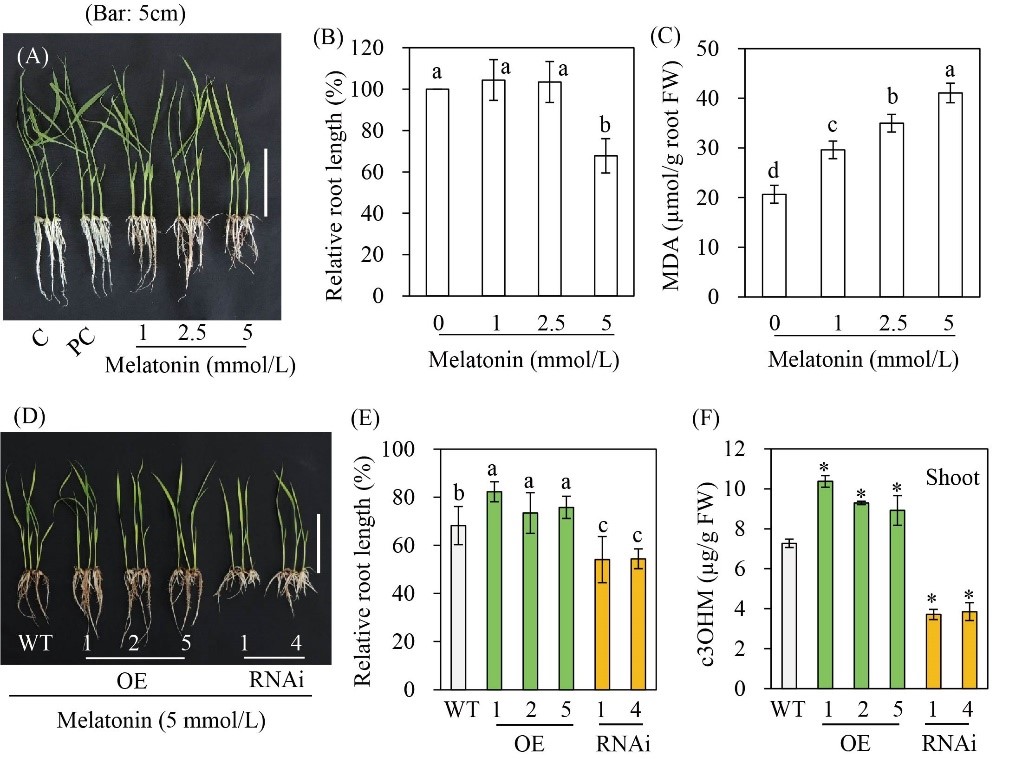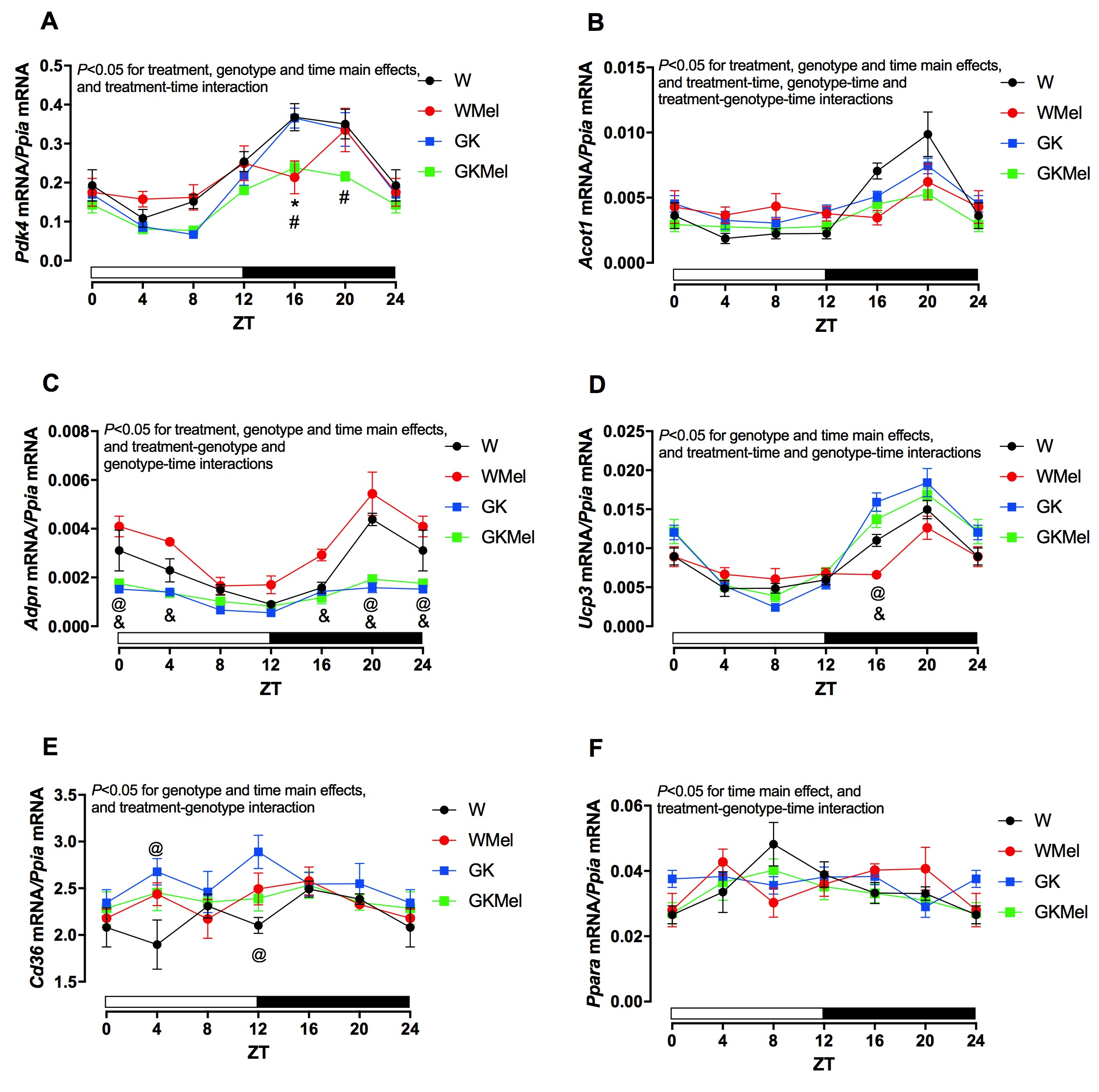
In this issue, Reiter and colleagues propose that melatonin in mitochondria, either synthesized de novo in this organelle or taken up from the circulation, is instrumental in reprogramming cancer cell glucose metabolism from the cytosol (the Warburg effect) to the mitochondria. Melatonin predictably achieves this action by inhibiting pyruvate dehydrogenase kinase (PDK) allowing for the upregulation of pyruvate dehydrogenase complex, which catalyzes the conversion of pyruvate to acetyl coenzyme A (acetyl CoA). Acetyl CoA feeds the citric acid cycle and increases ATP production via oxidation phosphorylation. Acetyl CoA also is required for the rate-limiting enzyme in melatonin production, arylalkylamine N-acetyltransferase (AANAT), which is in mitochondria to convert serotonin to N-acetylserotonin. This ensures melatonin production in the mitochondria of both normal cells and cancer cells. Cytosolic glycolysis is characteristic of many solid tumor cells and enhances their ability to rapidly proliferate, to avoid apoptosis and to become metastatic. By redirecting glucose metabolism from the cytosol to the mitochondria in cancer cells, melatonin reduces tumor cell growth, subjects them to higher levels of oxidative stress and increases apoptotic cell death. Reiter and colleagues speculate that this may be an essential mechanism by which melatonin inhibits Warburg-dependent cancer growth. This novel hypothesis may be a major step in understanding how melatonin limits tumor growth. The hypothesis is easily testable and this will likely happen quickly.



